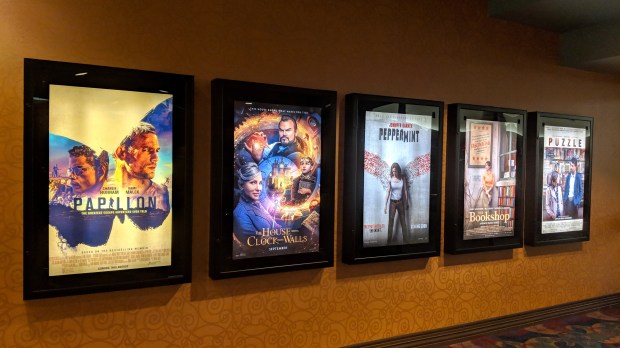In our baptismal promises we reject “the glamor of evil” but too often, our films teach the opposite lesson.
“Stories influence our lives, whether in the form of fairy tales, novels, films, songs, news, even if we do not always realize it,” Pope Francis said. “Stories leave their mark on us; they shape our convictions and our behavior.”
We have gotten pretty good about noticing the mistakes old movies make — about women, race, and more. Here are some thoughts about what today’s stories get wrong, starting with the images they show us.
First: Beware the “pornographic moment.”
You and your aunt and your mom’s friends would never get together to look through a neighbor couple’s window to watch them in bed, even if you planned to watch only briefly. If you even suggested such a thing, people would think you are creepy.
Well, isn’t it also creepy to do the same thing in a theater or on your phone using closeups, music and enticing editing techniques to enhance what you are watching?
I would argue that it is. Seeing sexualized nudity chemically alters your brain, triggering a biological response that is meant to bond you more closely to your spouse. In other contexts it causes real harm. Research has shown that watching sexual activity on television drives kids to imitate what they see — and that watching pornography makes adults more likely to support redefining marriage and redefining gender.
That’s why the Catechism strictly forbids pornography, which it defines as the depiction of a sexual act — a definition that would include even films that are only briefly “pornographic,” from Chris Pratt and Jennifer Lawrence’s Passengers (2016) tothe Elton John movie Rocketman (2019).
Second: Beware the “pretty means good” mistake.
In movies, good people are almost always good looking and bad people are less attractive. In real life that’s not the case at all.
You see this mistake in nearly every movie. I love the 2001-2003 Lord of the Rings trilogy, but it is a perfect example. In the books, hobbits are strange looking creatures; in the movie the lead hobbits are played by good-looking actors. Meanwhile, the orcs are uniformly hideous, proving just how evil they are.
You see this mistake both on the level of casting, as in Concussion (2015), in which Will Smith plays real-life Dr. Bennet Omalu, and in the alluring settings, as in 2020’s Joker, whose lead character moves through a beautifully shot urban landscape just like 1976’s Taxi Driver.
Disney’s Beauty and the Beast, in both the animated and live action versions, attempts to work against this trope and ends up reinforcing it, with the tacit message that “Being kidnapped by an ugly person is bad … unless that person turns out to be rich and attractive.”
These are dangerous messages to send our children. One antidote are movies in which good looking people are also the bad guys, in films from Snow White (1937) to Tangled (2010) — but the best answer is to discuss the misconceptions in these movies.
Third: The “violence is awesome” mistake.
Movies have been teaching us for years that violence solves problems, that guns are necessary to reach our goals, and that the victims of violence can shrug off their trauma.
As soon as you see a villain in a movie do something atrocious — like the British officer who torches a church in Patriot (2000) or Marvel Movie villains such as the Nazi officer who becomes Red Skull in Captain America (2011) — you know that you will be expected to cheer a violent act of revenge against this person at the end of the movie.
Examples of this are endless. In Taken (2008) Liam Neeson can do whatever he wants to the villains because they are human traffickers. In John Wick (2014) the bad guys get whatever is coming because they are thieves who killed a puppy.
Almost as bad as the original trope in these movies is the tendency for them to show violence as having no real effect on those who are involved in it. Compare the ending scenes in two 2013 movies, White House Down and Captain Phillips. The father and daughter protagonists in the former go through a harrowing experience then joke during a fun helicopter ride. Tom Hanks as Captain Phillips is so traumatized by his encounter with pirates that he can barely speak, a much truer — and ultimately more satisfying — account of violence.
I’m not saying that these movies should be banned, or even necessarily avoided.
But it is important to understand what movies are telling us and our children and to balance bad examples with others (I like these for future men and future women) that tell the truth about who we are.
Stay tuned for media mistakes about the human person and love.

